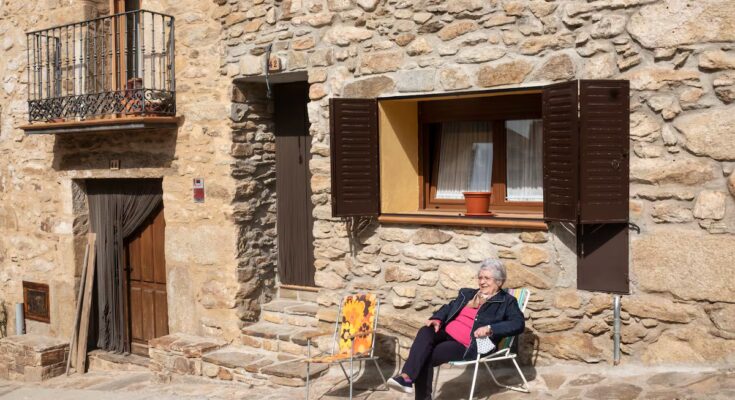Living on the outskirts of a big city and not having a city where your parents sent you in the summer made you unhappy in those seventies. If something strengthened us as people capable of hosting two universes in our hearts, the rural and the urban, it was that connection with the city. As our Seat 124 moved down the narrow road towards my aunt’s house, we heard the alienated screams of the women who had already been alerted to our arrival. First, second, distant aunts, a spontaneous welcoming committee that inaugurated the summer. You had to give kisses. So the children were not asked whether they wanted to give them or not; It was an obligatory ritual, it was inconceivable that you would refuse. Hurried and noisy kisses, kisses to those holy warts from which hair came out as black and hard as nails, kisses to that poor girl whose drool fell, kisses like suction cups, and our heads trapped in the hands of those women who made them slam against their chests dressed in flowered robes that smelled of food every day and of Joya cologne on Sunday. I don’t want to make comparisons, today everything turns into a bitter and ridiculous debate, but in my memory those kisses were like the safe conduct that allowed us city children to enter the streets that were theirs in the scary winters. Once the welcoming ceremony was over, they released you from their arms to set you free, although you could never feel alienated from their gaze.
Now I come back more often, because many people are returning to their origins; not always, but enough to enjoy life in the open air where I feel free and protected at the same time. They, those who shouted with the same high tone with which they sang at mass, are no longer there, even if All Saints’ Day, as if it were an unwritten pact, are remembered with their diminutive and some humorous anecdote is told which, by dint of repetition, takes on an ancient, almost fairytale-like value. Now we are the age of those who were our elders then, even if we seem younger and resist entering that condition. Faced with that prospect, I try to let myself be carried away by the inevitable without drama. Three elderly women wait their turn at the frozen food stand and I stand behind them. One of them has just bought a very colorful fleece at the market. Them, always at the market. They look like Roser Capdevila’s triplets in the third act of their lives. One in pink, one in green and one in blue. They comment on how comfortable clothes are these days, celebrate how warm they are and how little their jackets weigh. How light-hearted. The cold that the body of each of them must have accumulated under those rough fabrics that did not adhere to the skin. They talk about the severity of those winters. They should do an ad for polar fleeces or frozen ones. The signs on the van advertising the goods are endless, but they are experts in carefully choosing those products. The one in pink, seeing me confused, tells me how she prepares the anglerfish for the three changes learned in Arguiñano. Everyone is aware. Now that religiosity has returned, in a frozen food stand in depopulated Spain I confirm that Arguiñano is God. A God made man who speaks to his faithful with the language of the people. They listen to his culinary homily tucked into their fleeces. Sometimes, standing in front of the TV, like when they pray the Our Father.
The inexorable course of life is like queuing at the frozen food stand. Soon they will leave and I will be the first in line, the one who will give the next person’s turn. I don’t know if I’m ready to wear the liner as my last uniform, I just am. But when I get home I will write a story, and that task will be like cooking after all.



